If you use AI in business, are you using an AI disclaimer to protect yourself?
Did you know that 82 percent of marketers have successfully integrated AI tools into their content creation workflows?
As AI-generated content becomes more widespread, content creators are harnessing the power of AI to produce content faster.
However, using artificial intelligence for content creation also brings potential risks.
Look at the recent changes in Google’s Helpful Content System, which targeted mass AI-generated content.
If you’re a small business using generative AI, it’s crucial to protect yourself with a proper AI disclaimer (written by a lawyer) to avoid the legal issues I’m seeing as a business lawyer.
But don’t worry—I have created an affordable, lawyer-written AI disclaimer template to safeguard your business, and I’ll also share what you need to know.
Please note that while I am a lawyer, the information here is for informational purposes and not legal advice or professional advice.
This also means that we don’t have an attorney-client relationship.
If you have specific questions or need personalized advice, you can book a consultation with me—still more affordable than hiring an attorney by the hour.
Table of Contents
The Complete Legal Guide on Using an AI Disclaimer for Your Content
As a business lawyer, I often get a lot of questions about the use of AI and how to protect yourself.
So I have included everything you need to know below.
If you like, you can save this blog post for future reference, and feel free to share it with others!
What is an AI Content Disclaimer?
In simple terms, an AI content disclaimer or AI disclaimer is a statement that clarifies the use of artificial intelligence in generating or assisting with content production.
The main point is to inform your readers that your content may be created or edited by an AI tool, highlighting the potential for inaccuracies or lack of human oversight.
As you know, the digital applications of AI are endless now.
More and more people are using third-party AI tools to create content.
In the United States and other countries around the world, AI content is becoming the norm now.
However, using tools made by third parties creates significant security and data privacy concerns (something a privacy policy can help you with).
An AI disclaimer discloses that you use AI-generated images, written text, and any other type of content generated with artificial intelligence.
It’s no longer a new technology.
It’s become more commonplace and even a necessity for business owners to keep up with content creation demands.
Today, we’re seeing the use of generative AI models and large language models such as ChatGPT. DALL-E, Gemini, and Claude for all types of content, from social media posts to blog articles to images and much more.
And now search engines are returning AI overviews directly in search results.
As content creators, I bet you know there is some risk in using AI in your business.
But we tend to trust the AI algorithms that give these tools instructions on how to respond to the data they’re given.
However, this could come back to haunt you if you use AI-generated content in your business and don’t have the proper AI disclaimer.
Why You Need to Disclose the Use of AI Content
By posting a proper AI disclaimer (such as this template) on your website, you are showing transparency, maintaining trust with your audience, and setting the right expectations regarding the reliability of your content.
In other words, you limit your legal liability and reduce the likelihood of facing a lawsuit resulting from your use of AI.
There are other reasons you need a disclaimer if you use AI technology because it comes with some risks for business owners, such as:
- Intellectual property or copyright ownership violations
- Potential bias
- The risk of encountering deepfakes (also known as cheapfakes or shallowfakes—digitally manipulated images, audio, or videos that alter a person’s face, body, or voice—can lead to the spread of misinformation and potentially encourage criminal activities.
- Creating and spreading misinformation
- Breach of contract
- The inadvertent disclosure or use of proprietary, confidential, or personal information
- Inaccuracies and errors in content generated by AI
Many AI tools now provide warnings that the content generated could have errors or other issues. I explain more in this video.
Basically, OpenAI’s terms of use say that, in some instances, the output may not accurately reflect real places, people, or facts.
Essentially, you are using OpenAI at your own risk, and you should not rely on the data returned as a sole source of truth or facts.
You must evaluate the accuracy of the output yourself.
But even if you are not perfect; you are likely to make a mistake as a human.
So using an AI disclosure or disclaimer helps maintain your credibility when AI returns content that involves any of the risks above.
It also limits your legal liability because you put people on notice about these errors or omissions in your content generated by AI.
A Sprout Social survey indicated that 80 percent of consumers agree that AI-generated content will lead to misinformation.
But 38 percent said they would be interested in brands that used content generated by AI.
The general public has mixed feelings about other issues surrounding content produced by artificial intelligence technology.
Disclosing that you use AI in business shows transparency, further building trust and maintaining credibility.
No matter the quality or value of the content you produce, you can still face legal problems using this technology.
Related Post: 15 Documents Needed to Sell a Business – Checklist
AI in project management: best practices and tools
Should You Use an AI Disclaimer or Not?
The short answer is yes.
While the FCC (U.S. Federal Communications Commission) and FTC (The Federal Trade Commission) currently don’t provide guidance governing AI-generated content on social media or the internet, you can still be sued for content AI generates if you use it.
Do You Have to Disclose the Use of AI?
Yes, as a business lawyer, I have seen many lawsuits recently for the use of AI.
So I recommend disclosing the use of AI in content creation.
In August of 2024, the European Commission introduced the AI Disclosure Act, which was enacted to stop the dissemination of misinformation.
It asks content creators using AI to create disclosures. However, if a human reviews the content, then it does not need to be disclosed.
This act is one of the first moving toward AI disclosure standards.
This means that if you have audience members who fall under the European Union ruling, you must comply with applicable laws.
EU is known to set the standards such as GDPR compliance that we all have to abide by (no matter where we live).
There’s already new legislation in the form of the AI Disclosure Act of 2023 in the US requiring all material generated by AI to give a disclaimer.
It would apply to videos, photos, text, audio, and/or any other AI-generated material.
The Federal Trade Commission (FTC) would be responsible for enforcement of violations, which could result in civil penalties.
SO it’s better to be safe than sorry.
Check out these 100 essential tools for your online business.
Also, if you decide to become your own boss by starting an online business then here are some tools worth trying:
- Jasper to create content 10x faster
- Rankiq to rank your articles on the first page of Google
- Freshbooks or Quickbooks for your business accounting
- Kartra for your email marketing
- Quillbot to paraphrase text quickly
How to Easily Create an AI Disclaimer That Actually Protects You
Now that we’ve gone over the what and why of AI disclaimers, you may still be wondering if you need to create a disclosure or add an additional disclaimer to your website terms.
Many of you reached out to me about writing an AI policy, which prompted me to create this AI disclaimer template.
In the last year, chatbots, AI voices and art, virtual assistants, and AI-generated content have become increasingly popular.
You can hardly visit a website without encountering an AI chatbot.
But if you use content generated by AI and someone is negatively impacted by it, then that person could sue you for compensatory or punitive damages (in the worst-case scenario).
The full responsibility of understanding AI features and functionality and possible limitations they have is up to YOU.
User responsibility is key here, as it is up to the end users to responsibly use artificial intelligence and avoid the misuse of AI.
Using an AI disclaimer is a key part of protecting your business, but hiring a lawyer to draft one for you can cost $500+ an hour.
If you want a custom written disclaimer for your website or business then I offer that service here.
But I assure you that you will still get lawyer-level protection without the hefty legal fees with our AI content disclaimer template here.
AI Disclaimer Template Written by a Lawyer
My AI content disclaimer takes care of all the legalese and important clauses and saves you THOUSANDS in attorney fees.
With this super easy-to-use template, you won’t waste valuable time and money consulting with an attorney or law firm to create a legally sound AI content disclaimer.
This legal template is for anyone who uses AI-generated content in their business, including but not limited to:
- Social media managers posting AI-generated content on social networks
- Writers publishing articles generated with AI
- Bloggers publishing blog posts online
- Freelancers using AI content in their services
- Anyone who uses an AI model and generative models – essentially any AI tool to create content or offer services.
All you need to do is simply fill out the form with your business information, and you’ll be well on your way to protecting your business with an effective and up-to-date AI content disclaimer.
As a bonus, you will also learn the TOP 3 LEGAL ISSUES you should avoid when using AI in business!
This special bonus is included with your template FOR FREE ($100 value)
As a second bonus, you will get 500+ USEFUL AI PROMPTS to create ANY kind of business content 10x faster.
With these prompts, you will never run out of ideas for your content again. ($100 value)
AI tools hold the key to getting more done in less time, which is critical as the demands of online business owners grow.
Pro Tip: Also, if you want any add-on provisions, I offer contract reviews and consults to help you with any extras, additional disclosure fields, or customized legal templates you need.
Where to Post the AI Disclaimer on Your Website
You can easily post it as part of your existing Website Disclaimer or Terms and Conditions or even create a separate page in the footer section for your AI policy.
The most important thing is to post it on your website.
I recommend posting it in the footer section as part of your existing Website Disclaimer.
If you don’t have a proper Website Disclaimer already then make sure to grab my Disclaimer template here OR buy it as part of my legal bundles here.
In addition to an AI disclaimer, these are the 3 legal pages you must post on your website to comply with the laws.
And you can grab our Starter, Premium or VIP legal bundle templates (written by a lawyer) to get done posting these legal pages in just 15 minutes!
You also need to think about how users will navigate your site and ensure that all essential information is easily accessible.
This means compliance with the ADA (Americans with Disabilities Act).
View this post on Instagram
What is the Disclaimer for AI-generated Images?
The disclaimer for AI-generated images serves a similar purpose to an AI content disclaimer.
It informs viewers that the image has been created using artificial intelligence technology.
This disclaimer acknowledges the potential for inaccuracies or manipulation in the image due to its non-human origins.
It also allows for proper credit and attribution to be given to the AI system used in creating the image.
Don’t worry, you don’t need a separate disclaimer for AI-generated images if you use my AI disclaimer template here.
There’s already language included for this type of AI use as well.
FAQs on AI Disclaimer
Below are answers to the common questions I get on this topic.
What is the Disclaimer for AI Use?
The disclaimer for AI use typically states that while AI-generated content is intended to be helpful, the validity of any information produced by AI cannot be guaranteed.
Users should independently verify the accuracy and relevance of the information before relying on it for any decisions.
This disclaimer helps to limit liability for any inaccuracies or potential issues arising from AI-generated content.
This is a good starting point but obviously, you need more comprehensive legal language than above to fully protect yourself.
Related Post: 11 Essential Tips for Creating a Legally Compliant Website
What is an example of a content disclaimer?
The following disclaimer example can be used for AI content in general:
“The information on this website is provided as general information and is not intended to serve as professional or legal advice. While we make every effort to ensure that such information is accurate and up-to-date, we do not guarantee its completeness, reliability, or suitability for any particular purpose. Use of this content is at your own discretion, and we recommend consulting with a qualified professional before acting on any of the information provided. We disclaim liability for any losses, injuries, or damages arising from the use or reliance on such information found on this site.”
What is an Example of AI disclosure?
Here’s an example of an AI disclaimer:
“This content was generated with the assistance of artificial intelligence. While we strive for relevance and accuracy, please note that AI-generated content may not always reflect the most current legal standards or personalized advice. We recommend consulting with a qualified legal professional to ensure the reliability of the information, accuracy of the content, and applicability to your specific situation. This content does not provide warranties of any kind. “
Essentially, you want to protect yourself in case the AI systems you use return content that contains inaccuracies, omissions, errors, outdated information, or incorrect statements.
Is it Legal to Use AI Content?
I answer this important question in this video.
While it is legal to use AI content, you could unknowingly use copyrighted or trademarked content that the tool scrapes off the internet.
AI can also return inaccurate or biased information, which is why posting an AI disclaimer is so important.
You cannot copyright AI content.
As of 2024, the Copyright Office states that you can only copyright content written by humans.
How do I protect AI-generated content?
Unlike copyrights and patents, when it comes to protecting AI-generated content, it focuses on the confidentiality of the information instead of the nature of how it is created.
This solution provides some protection for your AI-generated content as long as you keep the information secret and the monetary value is linked to it not being generally known.
Final Thoughts on AI Disclaimer
Leveraging AI models and machine learning in content creation can be a powerful tool for small businesses.
But it’s essential to pair this technology with human judgment and best practices.
AI tools can be great partners in boosting productivity, but you must use them responsibly.
By implementing an AI disclaimer, you establish a clear limitation of liability, protecting your business from potential losses, injuries, or other issues while maintaining high standards in your business practices.
Combining the strengths of AI with thoughtful human oversight ensures you navigate the potential risks effectively while upholding the integrity of your content and business.
So be sure to get my easy-to-customize AI disclaimer template, which you can use for such content created by AI.
And be sure to check out our other legal templates and resources in the legal store.
Related Posts to AI Disclaimer
In addition to learning about an AI content disclaimer, you should join my Facebook group here to connect with me and other entrepreneurs.
This blog offers many legal tips for entrepreneurs here.
Check out more helpful blog posts next:
Should I Use an LLC for My Blog? (Lawyer Tips)
Lawyers Guide to ADA Website Compliance (WCAG Checklist)
16 DIY Legal Document Templates Entrepreneurs Need
Single Member LLC vs. Multi-Member LLC (Complete Guide)
Lawyer’s Guide on How to File a BOI for LLC Correctly
33 Amazing Benefits of OKRS for Any Organization
15 Secrets of Best Accounting Practices for Small Business
The Expert’s Guide to What is Sale of Product Income
How to License Content Correctly
11 Essential Website Legal Pages You Need
15 Website Legal Requirements You Must Know
VISIT THIS FREEBIES PAGE TO GET 5 AWESOME FREE BUSINESS, BLOGGING AND LEGAL TIPS!
Below are some more helpful blog posts, legal tips, tools, and resources that you should check out next:
- Beautiful Pinterest templates to increase traffic to your blog!
- What’s an LLC and when to form one?
- How to Legally Protect Your Book (with Proper Copyright Notice and Disclaimer Examples)
- AI writing tool to write blog posts 10x faster, create social media content, videos, and any kind of content to save time in business
- This SEO tool makes sure your blog posts rank on the first page of Google!
- Manage your accounting effortlessly with this amazing tool.
MORE TOOLS TO GROW YOUR ONLINE BUSINESS WITH AI AND CONTENT
- TubeBuddy to grow your YouTube channel, and this is another great tool for YouTube SEO.
- Free SEO Masterclass to learn how to optimize your blog posts for SEO to rank on Google. You can also buy this awesome bundle of ebooks instead if you prefer ebooks over video training.
- Best accounting software to manage profit and loss and more!
- Best payroll service(super affordable, too)
- A great all-in-one business platform for hosting your course, email communications, sales pages, and more!
- This paraphrasing tool to create original work for the client
- A professional theme for your website
- Millionaire blogger’s secrets here and tons of valuable resources.
- How to start your blogging business and make money online
- How to make money from affiliate marketing
- The Best Freelance Writing Contract Template (for writers and clients)
- Guest Blogger Agreement to publish guest posts on your website legally and avoid any copyright infringement, Media release agreement to be able to use other people’s photos, videos, audio, and any other content legally, Privacy policy on your website to ensure your blog’s legal compliance, Disclaimer to limit your legal liability, Terms and Conditions to set your blog rules and regulations! Get all of these templates at a discounted rate in one of my best-selling VIP legal bundle here.

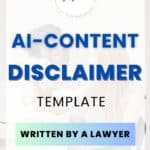

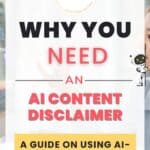

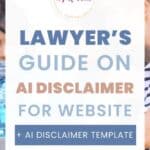

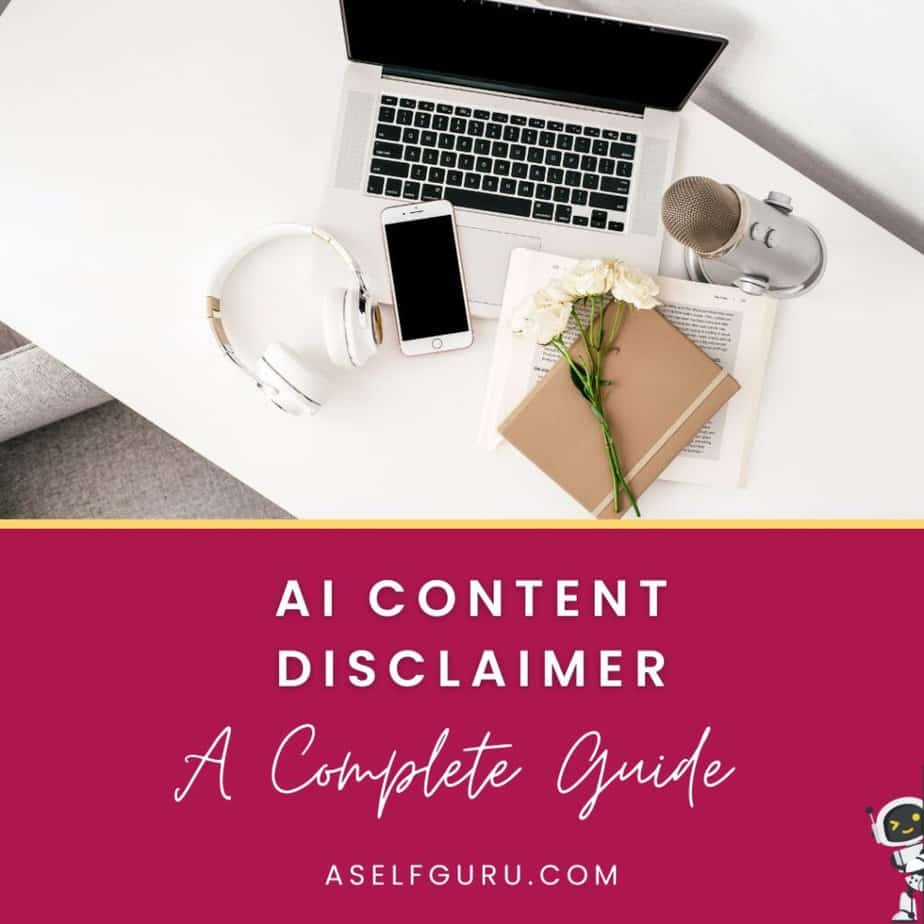

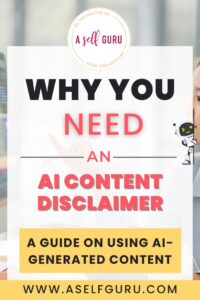

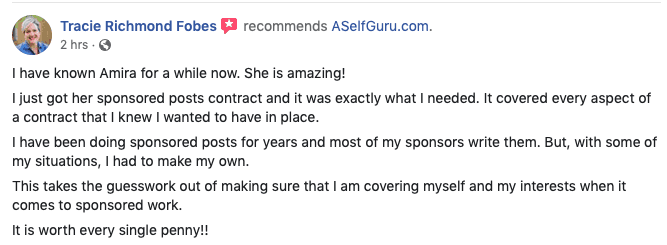

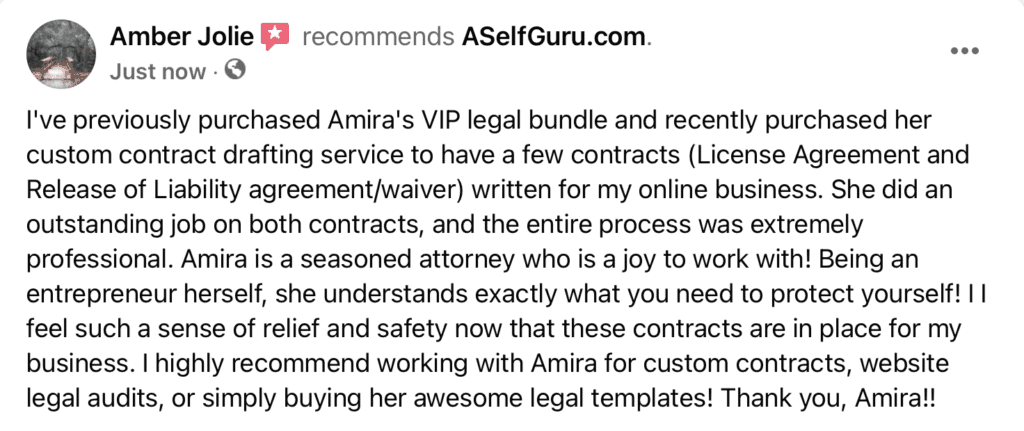

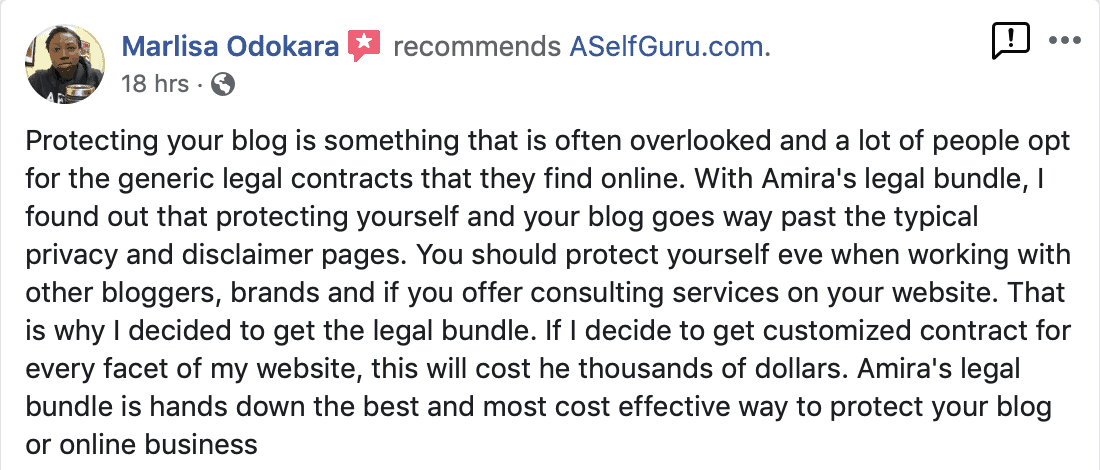




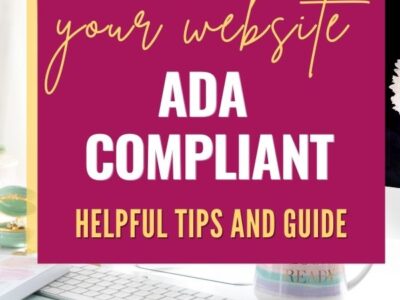
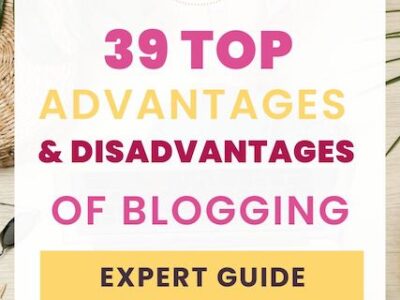






i always learn something new coming to your website
Thanks, Jimmy! Glad to hear that 🙂